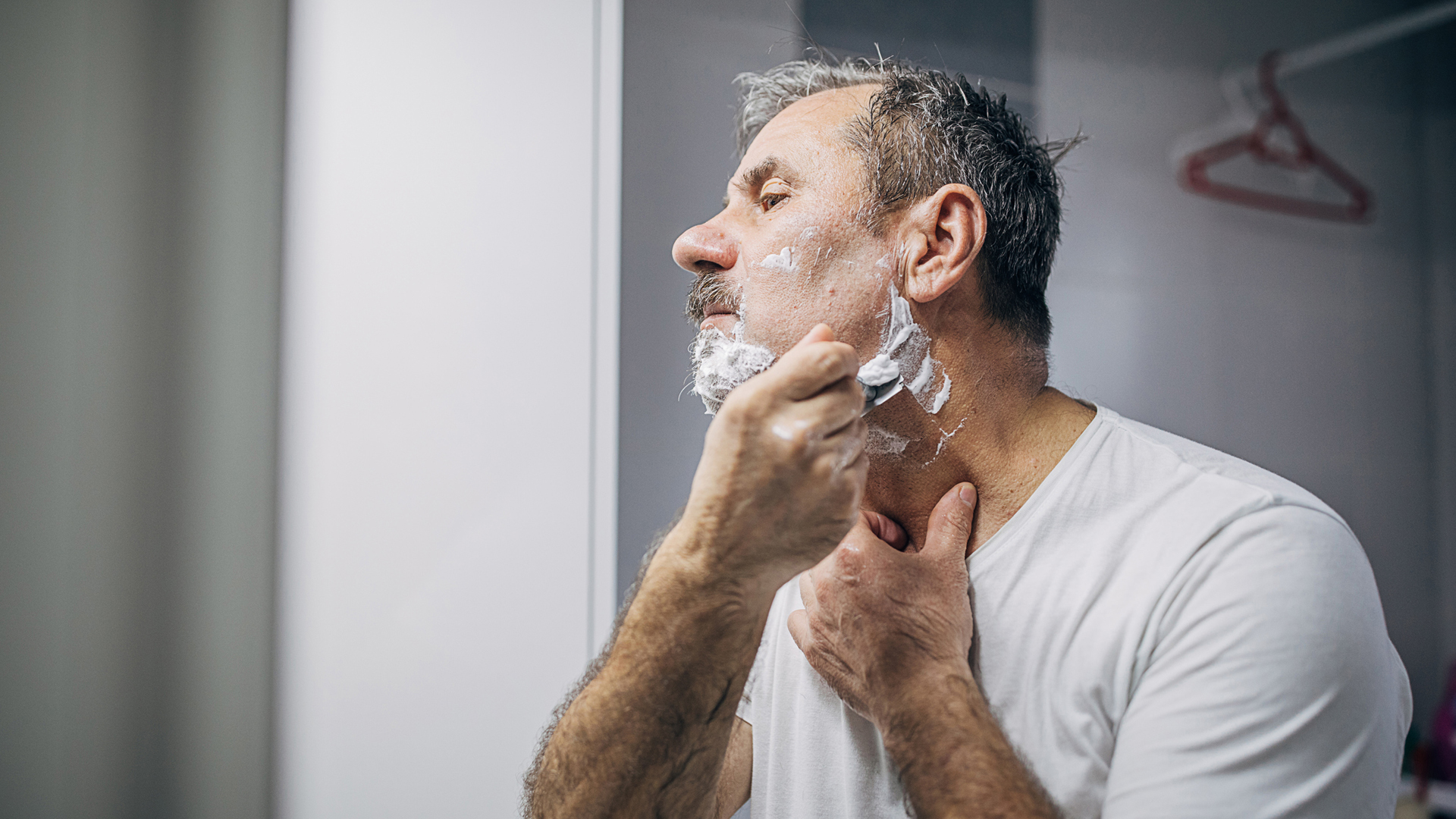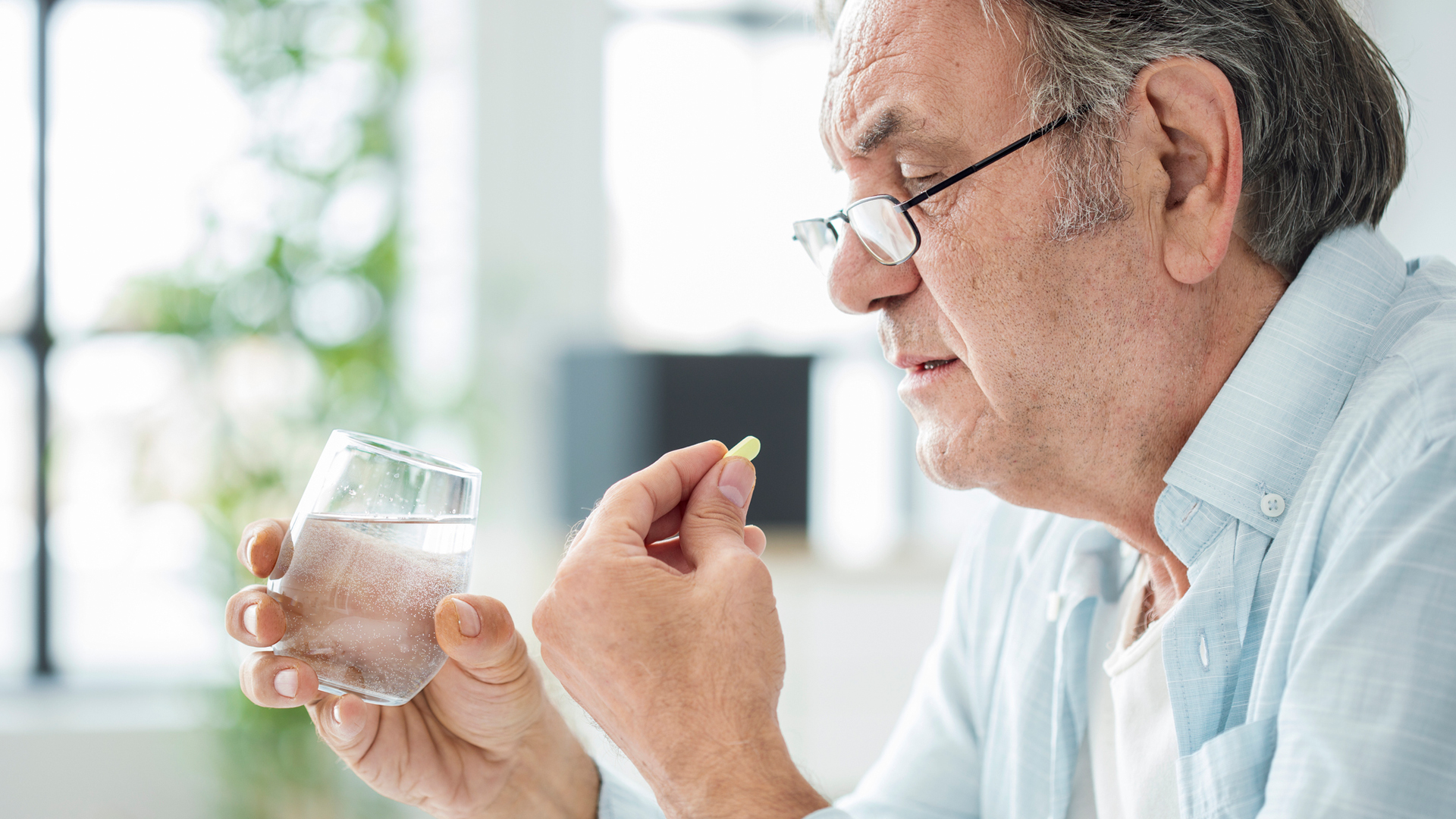Do testosterone supplements really work?
Experts reveal the science behind testosterone boosters and whether testosterone supplements really work

Testosterone supplements are often marketed as an easy way to boost testosterone levels, increase your sex drive, improve sexual performance and help with building muscle. These claims may sound impressive, but in many cases there isn’t enough scientific evidence to support them. So do testosterone supplements really work? And, if so, which ones are the most effective?
Testosterone is the main male sex hormone responsible for the development of characteristics people typically associate with masculinity, such as facial hair and a deeper voice. It’s much more than that, though.
“Testosterone is important for a range of body functions,” says Dr Shaan Patel, medical doctor and a medical director at Ted’s Health. “Symptoms of low testosterone range from depression and brain fog to low sperm count and decreased libido, so maintaining healthy testosterone levels is important for overall health.
Hypogonadism is a condition that occurs when the body doesn’t produce enough testosterone. Many people will experience problems with testosterone levels at some point in their life. That’s when testosterone supplements come in: they either aim to replace lost testosterone or boost its production in the body.
In this article, we’ll take a deep dive into the world of testosterone supplements. We’ll also look at their safety and efficacy, in order to provide a better understanding of available treatment options. However, it’s always best to consult your doctor before introducing any supplements.
What causes low testosterone levels?
It’s normal for testosterone levels to vary throughout the day. They peak early in the morning and diminish as the day goes on. Testosterone levels also fluctuate over our life span. In fact, aging is one of the biggest factors contributing to hypogonadism. As reported in the Sports Medicine journal, after the age of 40 men’s testosterone levels decline by 1%-3% per year.
Certain medical conditions and treatments can also result in hypogonadism. They include:
- Injury to the testicles
- Testicular cancer
- Type 2 diabetes
- Obesity
- Klinefelter syndrome and other genetic disorders
- Pituitary gland disorders, such as Cushing’s syndrome and acromegaly
- Thyroid disorders
- HIV
- Inflammatory diseases, such as sarcoidosis or tuberculosis
- Chemotherapy and other cancer treatments
- Opioid medications
Diet may also play an important role in regulating testosterone. As described in the Expert Review of Endocrinology & Metabolism journal, not eating enough zinc, magnesium, vitamin D and polyphenols can disrupt the brain-testicles communication and increase the risk of hypogonadism. Chronic alcohol abuse also leads to lower testosterone levels, as described in Alcohol Research & Health.
Chronic psychological stress is another potential cause of low testosterone levels, as suggested by scientists from the Physiology & Behavior journal. However, they point out that not everyone may react in the same way. Individuals with poor stress management skills and unstable social relationships may experience more fluctuations in their testosterone levels.

What are testosterone supplements?
Testosterone Replacement Therapy (TRT)
TRT (or androgen replacement therapy) works by directly delivering synthetic testosterone into the body. This hormone can be injected into the buttocks, applied directly to the skin with medicated patches or administered with tablets. However, this approach is not recommended for individuals with prostate cancer, blood-clotting problems and severe cardiovascular disease.
Testosterone-boosting supplements
Testosterone supplements, or ‘testosterone boosters’, tend to be used when testosterone replacement therapy is not possible. They’re also common among athletes and bodybuilders. Testosterone supplements include the use of controlled substances like androstenedione and androstenediol, as well as over-the-counter remedies like dehydroepiandrosterone (DHEA) and D-aspartic acid (DAA). They may also contain plant extracts, herbs and other nutrients deemed to increase the production of this hormone.
According to a systematic review published in the International Journal of Impotence Research, common ‘testosterone-boosting’ ingredients include tribulus terrestris, eurycoma longifolia (longjack plant), zinc, L-arginine, aspartate, horny goat weed, and yohimbine.
Do testosterone supplements work?
Testosterone Replacement Therapy
According to a review published in the Therapeutics and Clinical Risk Management journal, TRT may produce a range of benefits for men with hypogonadism, including improvements in libido, sexual function, bone density, muscle mass, body composition, mood, blood cell formation, cognition, quality of life and cardiovascular disease.
Many studies have also shown that TRT may help treat erectile dysfunction, obesity and age-related loss of muscle strength. What’s more, testosterone treatments appear to be effective at reducing depressive symptoms, as described in the JAMA Psychiatry journal.
Testosterone-boosting supplements
There is controversy surrounding testosterone supplements. Despite many impressive marketing claims, scientists are generally not convinced that they live up to the hype.
“While there is a large body of evidence and research to show that medication prescribed by doctors to treat testosterone deficiency is effective, there are no supplements or products outside of these prescribed medications that have been clinically proven to be safe and effective,” says Patel.

Dr. Shaan Patel is the Medical Director of Ted's Health and Aatma Aesthetics. He graduated with Bachelor of Medicine & Bachelor of Surgery degrees (BMBS) from the University of Southampton, U.K. Throughout his medical career he has worked across multiple disciplines, including; Vascular Surgery, Community Psychiatry, Diabetes and Endocrinology.
Nevertheless, research suggests that some of these potential ‘testosterone-boosting’ ingredients may indeed help with hypogonadism. But how effective they are may depend on the individual taking them, dosage and duration of the treatment. So, what do we know about common testosterone supplements?
Androstenedione is a weak anabolic steroid used to boost testosterone levels. According to a review published in the Molecules journal, it’s an effective testosterone supplement, but it produces side effects. As a result, it can only be provided with a doctor’s prescription. It is also listed among performance-enhancing drugs banned by the World Anti-Doping Agency, as well as the International Olympic Committee.
DHEA is one of the most researched over-the-counter ingredients. According to a review published in the Experimental Gerontology journal, DHEA may help increase testosterone levels. However, the effect tends to be more significant in women than men. Also, you may need to take more than 50mg a day to get the best results. Testosterone supplements tend to combine DHEA with D-aspartic acid. As reported in the International Journal of Reproductive Biomedicine, DAA performed well in studies done on animals, but did not produce similar results in humans.
Another testosterone supplement is an extract from a plant called Tribulus terrestris. As stated in the Journal of Dietary Supplements, some animal studies have shown that it significantly increases testosterone levels, but this effect was only noted in humans when Tribulus was part of a combined supplement. As such, there is no evidence that this ingredient can directly boost testosterone production.
Certain herbs and spices may potentially act as testosterone supplements. But in many cases, the research is still in its infancy. Some studies have shown that fenugreek seed extracts, ashwagandha root extracts, Asian red ginseng and forskohlii root extracts may be beneficial. According to a review published in the Biomolecules journal, there’s a possibility that ginger extracts may also increase testosterone levels.

Some vitamins and minerals are added to testosterone supplements. Indeed, many micronutrients contribute to the proper functioning of the male reproductive system. However, studies tend to produce conflicting results when it comes to testosterone levels.
Zinc is an example. One study published in the Nutrition journal has shown that zinc supplementation in marginally deficient elderly men for six months resulted in almost a double increase in serum testosterone. But another study indicated that a similar approach makes no difference to testosterone levels in males who eat enough zinc.
Vitamin D is another example. According to a meta-analysis published in the Endocrine journal, there’s a strong link between vitamin D deficiency and hypogonadism. At the same time, scientists from the Clinical Therapeutics journal argue that vitamin D may be important for testicular health, but there is no evidence that this nutrient can affect testosterone levels.
Are there side effects of testosterone supplements?
Testosterone Replacement Therapy
According to a review published in the Therapeutics and Clinical Risk Management journal, TRT may worsen the symptoms of enlarged prostate, liver toxicity, blood-clotting disorders, sleep apnea and severe heart failure. People who inject testosterone may experience pain and swelling near the injection site. Topical testosterone gels and patches can also induce allergic reactions.
People on TRT need to have their testosterone levels checked regularly. Otherwise, their testosterone levels may rise too high. Side effects of too much testosterone include:
- Acne
- Hair loss
- Headaches
- Aggressive behavior
- Drop in sperm count
- Loss of libido
- Erectile dysfunction
- Hypertension and heart problems
- Higher red blood cell count
- Enlarged prostate
- Liver damage
“If you take testosterone for normal aging instead of to treat a condition, side effects may be more likely,” says Hussain Abdeh, a superintendent pharmacist at MedicineDirect. “Testosterone supplements can affect the prostate and lead to an increased risk of prostate cancer.”
Testosterone-boosting supplements
Overdosing on testosterone-boosting supplements may also result in excessive testosterone levels and associated side effects. It’s especially easy with over-the-counter products, as their use is not monitored by a medical professional. What’s more, many testosterone-boosting ingredients have not been thoroughly researched and may carry unknown risks.
“The potential risks of such supplementation can outweigh the benefits,” says Patel. “Many supplements are not regulated by the FDA (US Food and Drug Administration) or in the UK by MHRA (Medicines and Healthcare products Regulatory Agency). Furthermore, such supplements could even lower natural testosterone levels in the body. How? Some testosterone boosters can contain ‘prohormones’ that mimic testosterone. By doing this, your body thinks it doesn’t have to produce its own anymore.”
Can you increase your testosterone levels naturally?
Diet
Nutrition plays an indirect yet important role in regulating testosterone levels. A diet rich in fruit, vegetables, lean protein and healthy fats is the first line of defense against systemic inflammation. According to a review published in the Aging Male journal, testosterone deficiency is closely linked to an increased production of pro-inflammatory signaling proteins.
Eating too much, or not enough, of certain macronutrients may also affect your testosterone levels. Data from health surveys have shown that consumption of sugar-sweetened beverages is a significant contributor to hypogonadism in young, adult men.
Weight loss
According to a review in Obesity Reviews, testosterone is a key hormone in the development of obesity and metabolic diseases, such as insulin resistance and dyslipidemia. Similarly, excess weight can lead to lower testosterone levels. “Obesity is directly linked to low testosterone,” says Patel. “A four inch increase in waist size can increase your chances of having low testosterone by up to 75%.”
Exercise
Evidence is growing that certain types of physical activity can temporarily increase testosterone levels. According to a meta-analysis published in the Journal of Endocrinological Investigation, strenuous exercise and resistance training can particularly help with testosterone production. At the same time, scientists from the Journal of Strength and Conditioning Research argue that this approach may not work for men who do not suffer from hypogonadism.
- Related: Does running increase testosterone?
Sleep
A good night’s sleep may help to prevent low testosterone levels. According to a meta-analysis published in the Sleep Medicine journal, sleep deprivation lasting more than 24 hours may be particularly harmful.
This article is for informational purposes only and is not meant to offer medical advice.
Sign up for the Live Science daily newsletter now
Get the world’s most fascinating discoveries delivered straight to your inbox.

Anna Gora is a health writer at Live Science, having previously worked across Coach, Fit&Well, T3, TechRadar and Tom's Guide. She is a certified personal trainer, nutritionist and health coach with nearly 10 years of professional experience. Anna holds a Bachelor's degree in Nutrition from the Warsaw University of Life Sciences, a Master’s degree in Nutrition, Physical Activity & Public Health from the University of Bristol, as well as various health coaching certificates. She is passionate about empowering people to live a healthy lifestyle and promoting the benefits of a plant-based diet.










